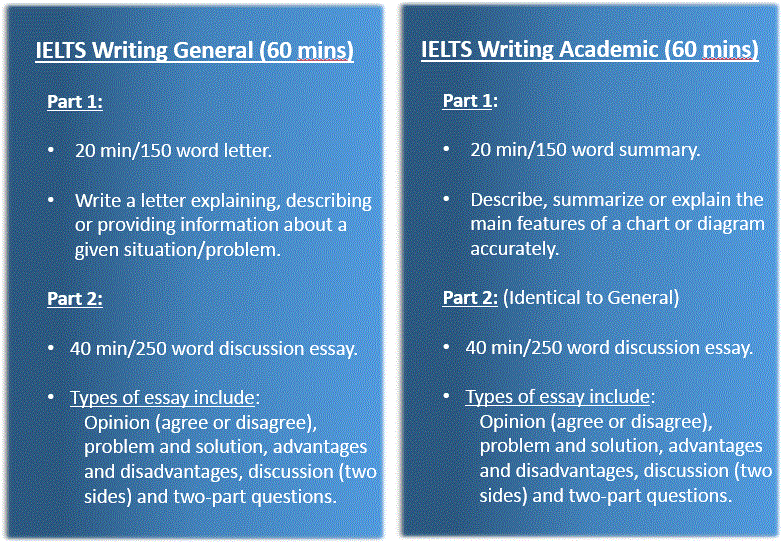The overall band score for that task would be: 6 (5+6+6+7 = 24 and 24/4 = 6).
It is important to understand therefore that each of the criteria are just important as the others!
So, do not focus just on improving your grammar, you need to focus on all four aspects to improve your score most rapidly.
IELTS Writing Strategies
It is important to become familiar with the different types of writing tasks that you may face. Even if your written English is already very good the writing tasks are trickier than they first look and need practicing.
The good news is they all follow a similar pattern, there are 5 different styles of IELTS task 2 essays to write (see info-graphic above) and all IELTS Academic writing part 1 questions involve describing/summarizing or explaining a graph, chart, table, diagram or flow chart and IELTS General writing part 1 requires a letter..
Becoming familiar with each of these is not so tricky, and will make you more relaxed in the exam. It also prevents you from making any silly mistakes like misunderstanding the question instructions if you have tackled that style of question previously.
More Good News…
Further good news is that there are 10 common topics that come up time and time again in all parts of the test. This means that if you focus your vocabulary building and practice around these topics it will be highly likely to improve your band score.






